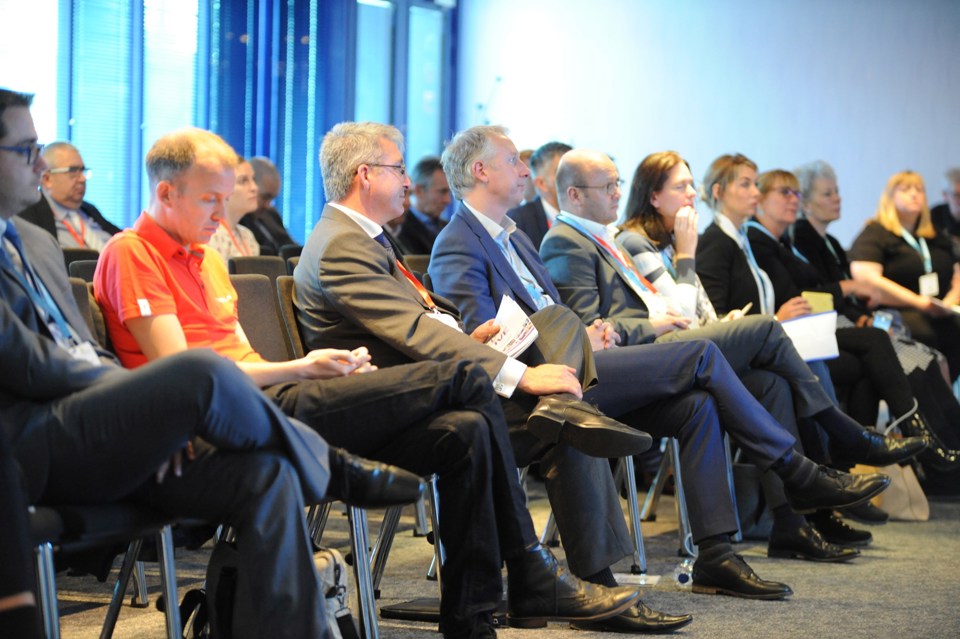Businesses can cut travel costs and share some of the savings with employees to drive cultural change by focusing on the ‘total cost of mobility’ rather than a fleet-based total of cost of vehicle ownership model.
Corporate mobility experts told ACFO’s autumn ‘Drive for Mobility’ seminar that the implementation of a ‘door-to-door’ mobility cost model approach to travel was in its infancy, but would be become the norm within the next three-five years.
And delegates at the seminar - believed to be the first of its type focusing on business mobility targeted at fleet decision-makers - heard that some companies were already on the road to driving the change with the merger of fleet and business travel departments. That enabled managers to have a complete picture of all journey and related expense costs, including hotel bills and meal claims as well as expenditure relating to car parking, taxi fares, flights and rail tickets.
One of the key drivers behind focusing on mobility as a service (MaaS), in addition to driving down the cost of corporate travel, is to deliver an increasing array of benefits to all employees, not only recipients of a company car.
While there is an acknowledgement that job-need company cars will be “here to stay”, Graeme Banister, consulting director at global research and consulting organisation Frost and Sullivan, said: “Mobility is here. What’s changing is the way mobility is delivered and for fleet managers and companies there is an opportunity to deliver mobility to all employees.
“Transport has been treated with a silo mentality and it is either public or private. But there is now a move to a total cost of mobility concept and the importance of understanding the full cost of travelling from A to B.”
That view was supported by Justin Whitston, chief executive of MaaS platform provider Fleetondemand, which supported the seminar alongside LeasePlan UK, a member of LeasePlan Corporation NV Group, part of the world’s leading fleet and vehicle management company.
Whitston said: “MaaS will underpin what drives future cost of smart mobility solutions. It brings together all forms of transport in one platform.”
Describing how a single online platform could be used by organisations and their employees to “find, book and pay” for all travel and related costs, he said: “MaaS is taking the personal and business objectives and delivering the best mode of transport for each particular journey.”
He continued: “The user experience must not fail and must be integrated. There must be an end-to-end supply chain to drive hyper convenience and geographical reach.”
He explained that MaaS started with a smart mobility search to assess the best mode of transport and total door-to-door cost for a particular journey embracing requirements such as car parking, tolls and overnight accommodation if necessary.
Options, he suggested must be preference-based or driven by corporate policy with the single platform technology having the ability for employees to “find, book and pay” for their journey.
He added: “Technology must be able to normalise multi-data sources. The platform must embrace business objectives and employees’ personal objectives and deliver the best mode of transport for each particular journey.”
Furthermore, he suggested that once a journey had been booked and paid for real-time updates had to be provided to employees related to influential factors such as traffic congestion, weather and rail delays.
“We are focused on the itinerary of a journey and offer the ability to modify journeys in real-time. That is all part of the business mobility solution,” explained Whitston.
Fleet decision-makers are increasingly being urged to focus on adopting business mobility or MaaS, which describes a shift away from personally owned and operated modes of transport, such as company cars, vehicle salary sacrifice schemes and private cars reimbursed for business use, towards mobility solutions that are consumed as a service.
But, Whitston said it was important for employers not just to offer MaaS solutions to company car drivers or business travellers but to all employees.
“MaaS is about choice, flexibility and trust. Give all employees benefits and empowerment,” he said. “MaaS presents an exciting opportunity for companies to look at how their employees move.
“Many employees don’t have a company car, but employers need to think about the benefits they give to all their staff. MaaS presents an opportunity to restructure choice.”
In advising delegates where to start with implementation of a MaaS solution, Mr Whitston suggested launching a single initiative - perhaps car sharing or car pooling - with a single group of employees.
“Assess the type of journeys made, pilot a scheme, poll the users to find out what they think and calculate the return on investment,” he concluded.
















Login to comment
Comments
No comments have been made yet.